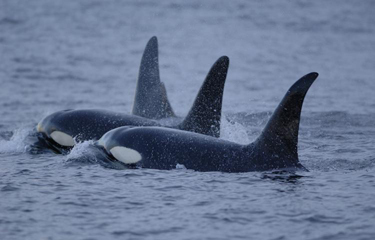A U.S. judge has rejected a motion from the state of Alaska, the Alaska Trollers Association, and NOAA Fisheries to stay his order earlier this month that will effectively close the winter and summer commercial chinook troll fishery in Southeast Alaska.
The groups are now looking to the U.S. Ninth Circuit Court of Appeals for relief as they race against the clock to ensure the commercial fishery can open 1 July.
Alaskan fishing groups were devastated on 2 May when U.S. District Court Judge Richard Jones issued a temporary restraining order at the bequest of the Wild Fish Conservancy (WFC), vacating portions of the National Marine Fisheries Service’s (NMFS) incidental take statement that supports the chinook fishery and remanding a flawed biological opinion back to the service to be fixed. The judge’s actions effectively closed the chinook salmon summer and winter commercial troll fishery.
The state of Alaska filed a motion for a stay – with the Alaska Trollers Association joining the motion – on 8 May to salvage the summer chinook salmon season, which was set to begin on 1 July before the district court ruling. NMFS supported that motion in a 22 May filing.
Last week, the state announced that Jones rejected the request for a stay. The state responded by filing a request for a stay with the Ninth Circuit Court of Appeals, and the Alaska Trollers Association indicated that they would do the same. The state is asking for a response by 23 June to support the commercial fishery opening on 1 July.
NOAA, the state of Alaska, and the Alaska Trollers Association have already appealed the judge’s 2 May decision to the Ninth Circuit.
NOAA Fisheries is working to fix the flawed biological opinion at the heart of the lawsuit, and the government set a November 2024 deadline for fixing the deficient report. However, the Alaska Trollers Association said last week they heard that the new documents would be ready in time to support the 1 July opening. NOAA Fisheries Alaska Regional Administrator Jon Kurland will hold a meeting in Sitka, Alaska, on 7 June to provide an update on the ongoing lawsuit with Southeast Alaska salmon trollers.
WFC first sued NFMS in 2020, claiming that NOAA was allowing commercial fishermen to overharvest chinook salmon – a key source of food for southern resident killer whale – starving the marine mammals and causing population to decline. First listed as an endangered species in 2005, their population is estimated to be down to 73 animals.
The legal battle centers on a 2019 Southeast Alaska biological opinion used to justify the commercial harvest, which WFC claims is flawed. In 2021, the U.S. District Court for the Western District of Washington determined that the 2019 biological opinion had indeed relied on uncertain information. WFC followed up by asking the court for a temporary restraining order, which Jones agreed to earlier this month.
“After a hard-fought, four-year legal challenge against the federal government, state of Alaska, and Alaska’s commercial fishing industry, Wild Fish Conservancy is thrilled to share a major landmark victory that is being celebrated coastwide as one of the most impactful recovery actions for wild chinook and southern resident killer whales in decades,” WFC Executive Director Emma Helverson said in response to the ruling.
Industry groups were outraged by the decision.
“As a wild salmon-focused environmental organization, SalmonState condemns the Wild Fish Conservancy’s misguided, irresponsible litigation – which in all probability won’t save a single endangered killer whale, but will ruin the livelihoods of thousands of Southeast Alaska’s most committed, long-term conservationists and wild salmon allies,” SalmonState Executive Director Tim Bristol said. “This is an abuse of the Endangered Species Act by out of touch, ideological, serial litigants.”
The fishery, the agency said, supports smaller communities – including Alaskan Native communities – in Southeast Alaska, and its over 1,000 active permit holders are mainly "small-scale participants reliant on the fishery."
In its filing requesting a stay, NMFS argued that the court underestimated the economic consequences of its actions, which the agency claims amounts to USD 29 million (EUR 27 million) annually.
Helverson, however, put the blame for Alaskan fishermen’s plight squarely on NOAA’s shoulders.
“We want to emphasize that Alaskan fishers are not at fault for NOAA’s chronic mismanagement of this fishery, and we are sincerely sympathetic to the burden this decision will pose to Southeast Alaskan communities,” she said. “The fault lies with government fisheries managers for consistently approving unsustainable harvest plans that have failed fishers, wild salmon, and Southern Resident killer whales.”
The fight has also continued over NMFS’ prey increase program, which raises fish in a hatchery to provide more salmon for wild orcas to feed on. In legal filings, NOAA claims that the prey increase program more than compensated for the salmon taken in the summer and winter commercial harvests. That fact, the agency argued, must be taken into consideration in determining the impact of Alaskan trollers on killer whales’ food source.
WFC, however, wants the prey increase program shut down. The group claims that hatchery-raised fish pose a genetic risk to the wild salmon population and interbreeding will result in less productive wild salmon. The government says it has taken steps to mitigate those concerns and argues that the ending the program will deprive killer whales of prey in the future.
While the court did not vacate the portion of the 2019 biological opinion supporting the prey increase program when it issued its temporary restraining order in May, WFC has asked the court to issue a further injunction to do just that. NMFS, the state of Alaska, and the Alaska Trollers Association have opposed that motion.
Courtesy of NOAA Fisheries







